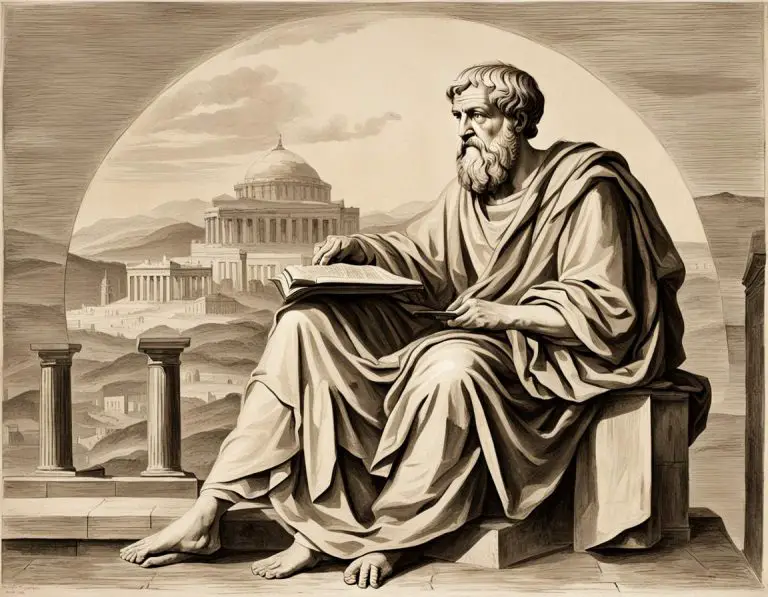Comparing Philosophical Leadership with Traditional Rulership
When comparing philosophical leadership with traditional rulership, it is crucial to highlight the stark differences in their underlying principles and approaches to governance. Philosophical leadership places a strong emphasis on wisdom, ethics, and the pursuit of truth to guide decision-making processes. On the other hand, traditional rulership often revolves around power, authority, and maintaining control over the population. This fundamental distinction sets the stage for contrasting styles of leadership and their respective impacts on the welfare of society.
Philosophical leadership tends to prioritize the well-being of the collective over individual interests, fostering a sense of unity and social cohesion. In contrast, traditional rulership may lean towards prioritizing the interests of the ruling elite or maintaining the status quo, potentially leading to social unrest and discontent among the populace. By critically examining the philosophical underpinnings of leadership styles, we can gain valuable insights into how different approaches shape the governance structures and overall stability of a society.
Effectiveness and LongTerm Stability
Philosopher kings are often hailed for their effectiveness in governance and their ability to establish long-term stability within a society. By grounding their decisions in philosophical principles rather than solely in personal gain or power struggles, these rulers prioritize the well-being of their citizens and the overall harmony of the state. This approach not only fosters a sense of trust and loyalty among the populace but also contributes to the sustainability of the ruling system over time.
The emphasis on ethical leadership and wisdom in philosophical training equips philosopher kings with the tools necessary to navigate complex political landscapes and make decisions that are guided by reason and virtue. This focus on cultivating a moral compass and a deep understanding of the greater good helps ensure that the ruler’s actions are aligned with the best interests of the society as a whole. As a result, philosopher kings are better positioned to lead with integrity and foresight, laying the groundwork for lasting stability and prosperity in their realms.
The Influence of Philosopher King Ideals in Modern Politics
In today’s complex political landscape, the ideals of the Philosopher King continue to resonate with those seeking ethical and insightful leadership. Rooted in the teachings of Plato, the concept of a ruler guided by wisdom and virtue remains a compelling framework for modern governance. Leaders who embody the characteristics of a Philosopher King are driven by a deep sense of morality and a dedication to the common good, rather than personal gain or power.
The influence of Philosopher King ideals in modern politics can be seen in movements advocating for transparency, justice, and the pursuit of truth. Leaders who embrace these principles strive to create policies that prioritize the well-being of their constituents over short-term gains. By integrating philosophical values into their decision-making processes, these leaders aim to foster a society built on fairness, integrity, and compassion.
Implementing Philosophical Principles in Governance
To successfully implement philosophical principles in governance, leaders must first prioritize the pursuit of truth and wisdom over personal gain or power. This means fostering a culture of critical thinking, open dialogue, and intellectual humility within the government. By encouraging the exploration of diverse perspectives and the challenging of traditional beliefs, leaders can pave the way for innovative solutions to complex societal issues. Furthermore, a commitment to ethical decision-making and a deep understanding of justice are essential for upholding the common good and promoting social harmony within the state.
In addition to fostering a philosophical mindset within the government, it is crucial for leaders to prioritize the well-being and empowerment of their citizens. Policies should be centered around principles of fairness, compassion, and respect for individual rights. A truly philosophical ruler understands the importance of serving the people with integrity and humility, recognizing that power should be wielded responsibly and in service of the greater good. By embodying these values in their governance, leaders can inspire trust, loyalty, and a sense of shared purpose among their citizens, resulting in a more stable and harmonious society.
Philosophical Training and Education for Future Leaders
Philosophical training and education are crucial components for grooming future leaders equipped with the wisdom and ethical compass required to navigate complex governance challenges. The teachings of philosophy provide a solid foundation that fosters critical thinking, moral reasoning, and a deep understanding of human nature. By immersing themselves in philosophical studies, aspiring leaders can develop a broader perspective that transcends immediate concerns and embraces the broader implications of their decisions.
Furthermore, philosophical education instills leaders with the ability to question assumptions, challenge conventional beliefs, and seek truth beyond the surface. By engaging with philosophical texts and engaging in rigorous debates, future leaders sharpen their analytical skills and cultivate the capacity to weigh competing values and interests. This rigorous intellectual training not only enhances their decision-making abilities but also equips them with the agility to adapt to changing circumstances and envision innovative solutions to societal problems.
Cultivating Wisdom and Ethical Leadership Skills
Cultivating wisdom and ethical leadership skills is crucial for future leaders to navigate the complexities of governance effectively. By instilling a deep sense of moral responsibility and integrity, aspiring leaders can make decisions that benefit the greater good. Developing a strong ethical compass helps leaders stay true to their values even in the face of adversity or temptation.
Furthermore, fostering wisdom among leaders enables them to make sound judgments that take into account long-term consequences and the well-being of society as a whole. Through continuous learning, reflection, and seeking counsel from experienced mentors, leaders can refine their decision-making processes and lead with wisdom and compassion. Ultimately, the combination of ethical leadership and wisdom forms the foundation for a successful and respected leader who can inspire positive change in their community and beyond.
Related Links
Why The Tripartite Soul is Important in Plato’s Philosophy
What Are the Key Elements of The Tripartite Soul
